Your currently viewing RAW Contemporary | View RAW Modern
The beautifully curated show ‘Alice Neel – An Engaged Eye’ at the Centre Pompidou in Paris is the first French retrospective of the artist’s work. A large room filled with 75 paintings and drawings from the late 1920s to her last work produced shortly before her death in 1984, shows how Neel fought to change society for the better through her art. Long ignored during her lifetime, she now stands out as a major figure in American painting for her depictions of New-York society and uncompromising and ground-breaking representations of femininity. Exploring the political and social dimensions of her work, this exhibition additionally features a selection of documents from her archives, along with excerpts from films, including Alfred Leslie’s Pull my Daisy (1959) in which Alice Neel features.
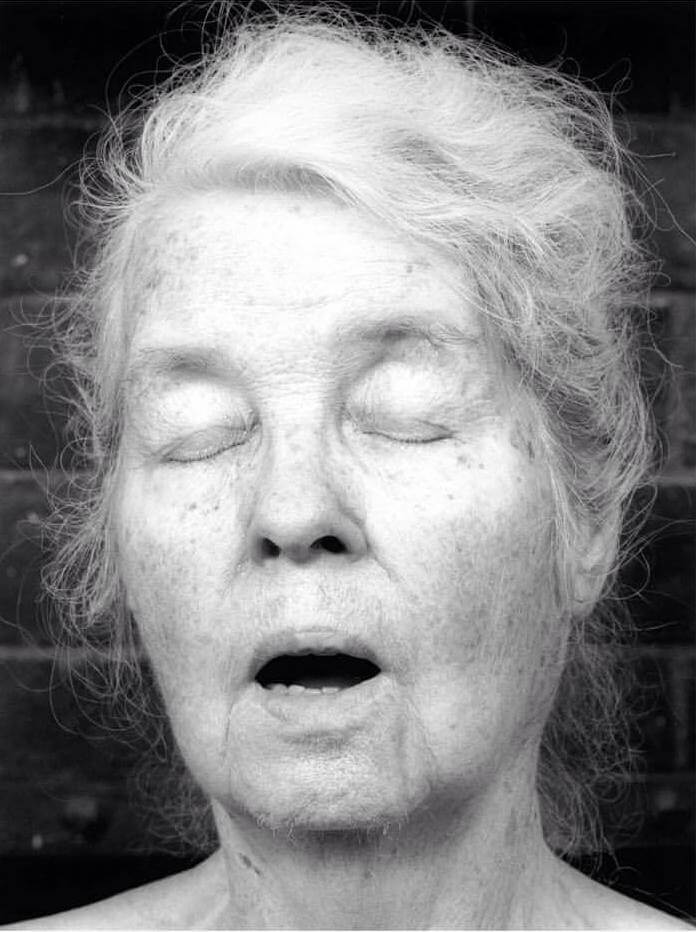
The exhibition’s first part highlights Neel’s political engagement in current affairs and social injustice. She records demonstrations supporting unions and denouncing anti-semitism with Nazis Murder Jews (1936) along with her lesser-known ink drawings such as Men Behind Bars from the same year. Eisenhower, McCarthy, Dulles (1953) alludes to the coup d’état in Guatemala by the C.I.A during the Cold War while another painting shows a street scene where a demonstration is taking place for Willie Mcgee, an African-American man who was wrongly convicted and sentenced to death for allegedly raping a white woman in 1945 in the Jim Crow South. T.B. Harlem (1940) and The Spanish Family (1943) are examples of Neel’s commitment to giving visibility to marginalised communities and her intersectional approach to representing all layers of American society.

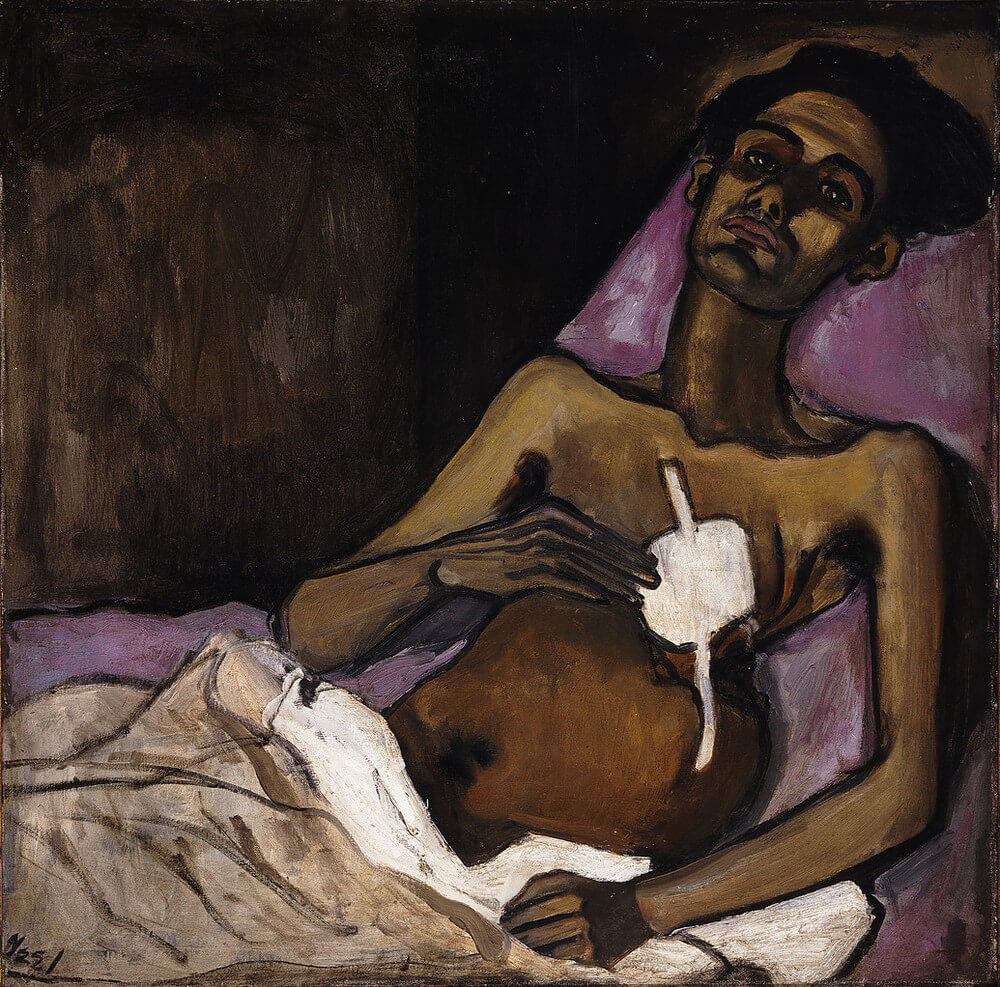
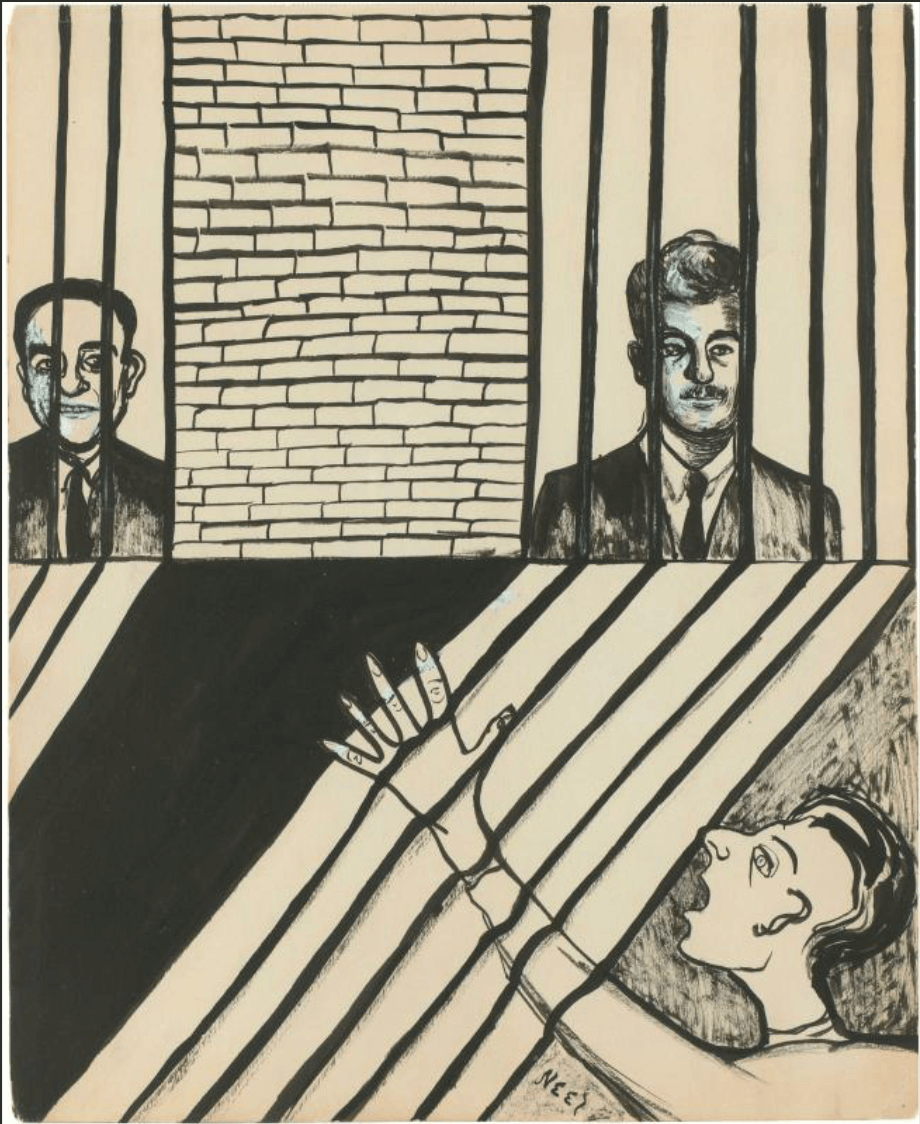
Neel’s harrowing work from 1933, Synthesis of New York (the Great Depression) shows the devastating effects of a global economic crisis in the streets of New York where men and women are shown having skulls for faces and the usually busy and chaotic city is at a standstill.
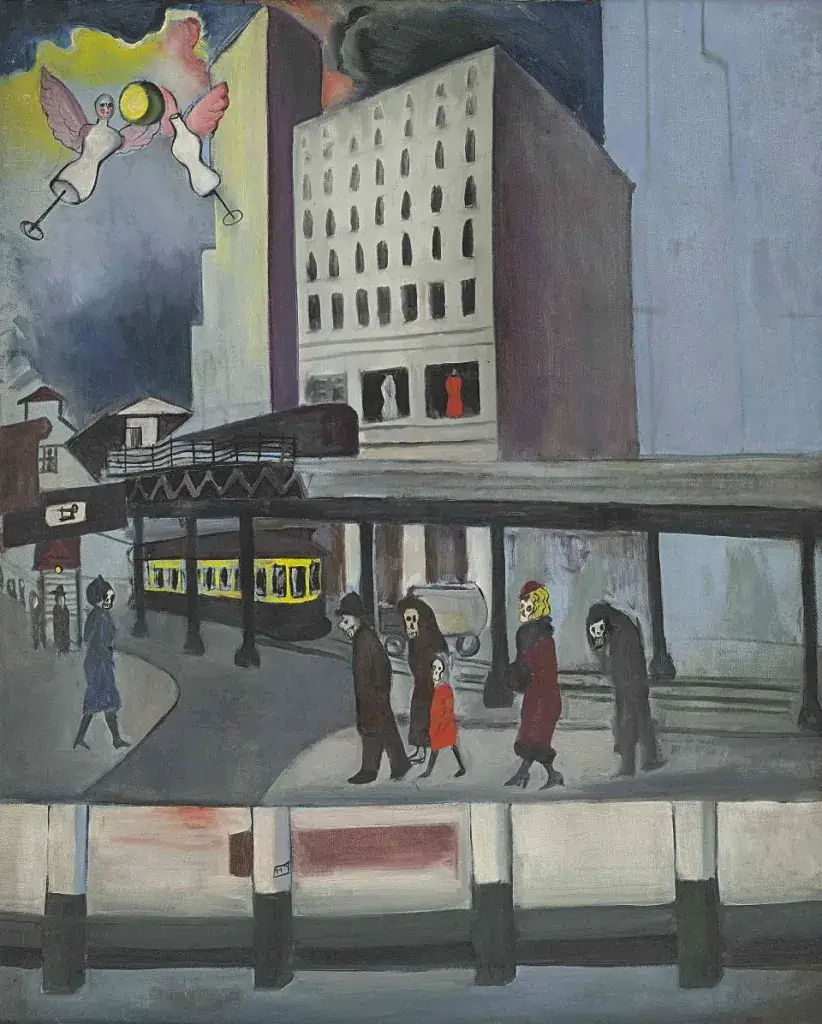
Finding it easier to paint the world through people, from the 1940s onwards, Neel overwhelmingly focused on portraiture (rather than the figurative and metropolitan scenes which were prominent in her earlier work). A large focus of the exhibition is on Neel’s portraits of feminist activists, writers and art historians such as Linda Nochlin (1931-2017), author of ‘Why have there been no great women artists’ (1971), Mary Garrard (b.1937), recognised as a founder of feminist art theory and her work on painter Artemisia Gentileschi, Cindy Nemser (1937-2021), founder of the Feminist Art Journal and American artist, activist and educator Irene Peslikis (1943-2002).
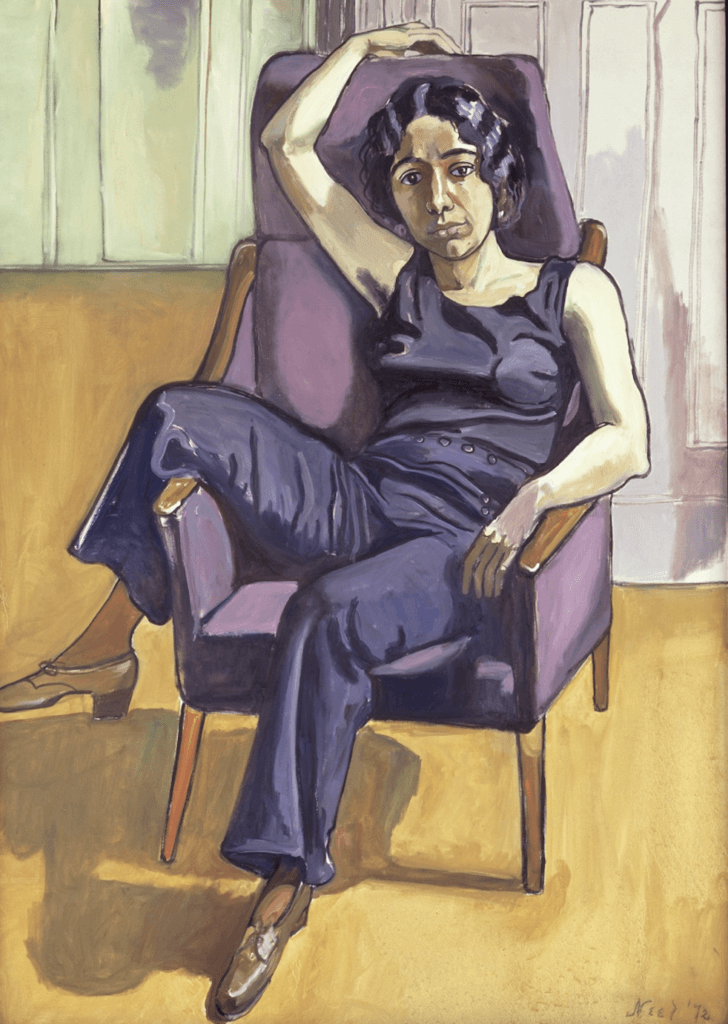
Other prominent figures include Argentine Marxist revolutionary and major figure in the Cuban Revolution Che Guevara (1928-1967) and General Secretary of the Communist Party in the United States, Gus Hall (1910-2000).
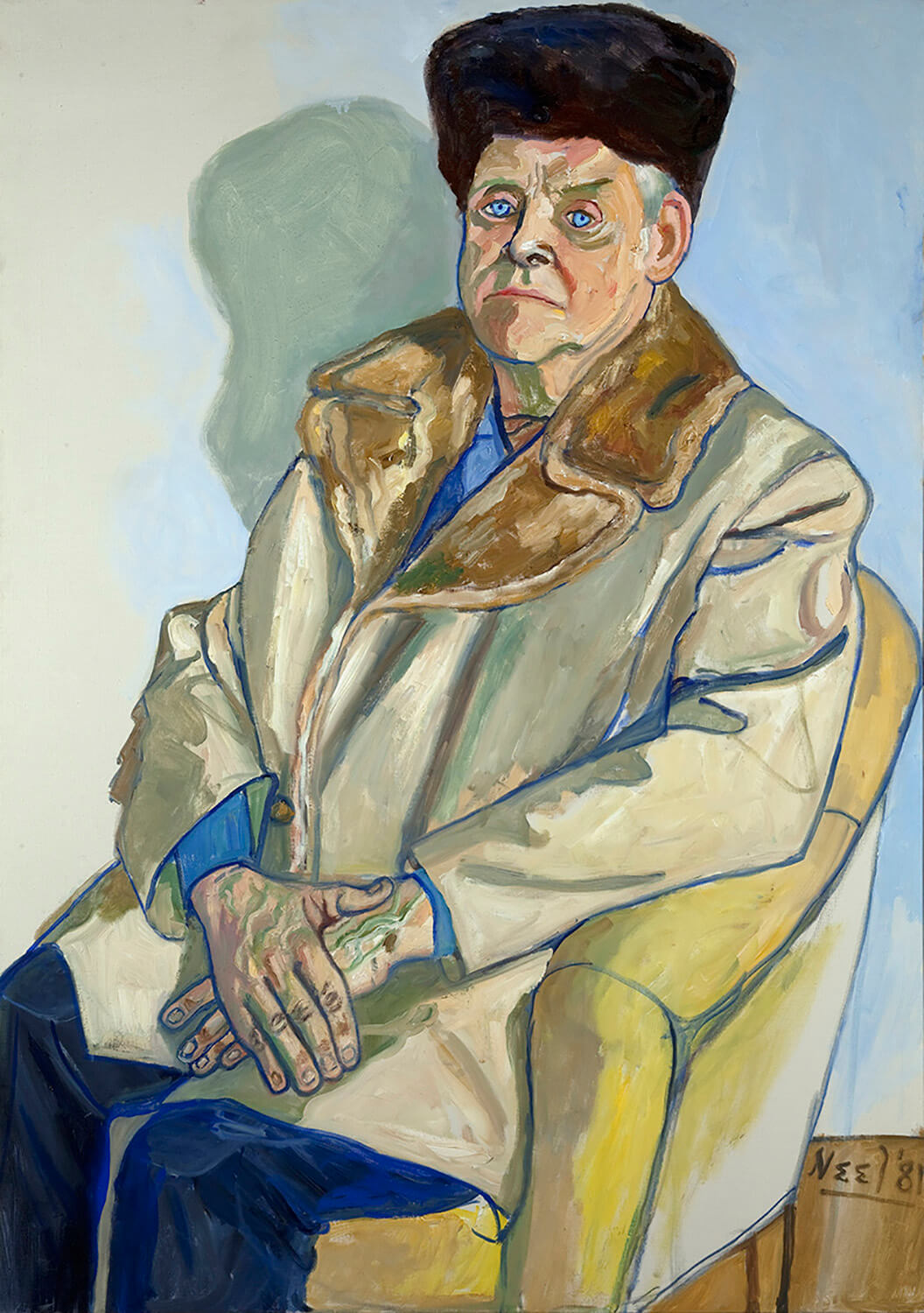
Two highlights in this show are Neel’s portraits of Andy Warhol in 1970, wearing a corset as he had his stomach cut in surgery to take the bullets Valeria Solanas (1936-1988) had shot in him and sex worker, sexologist and activist Annie Sprinkle (b.1954) in 1982.
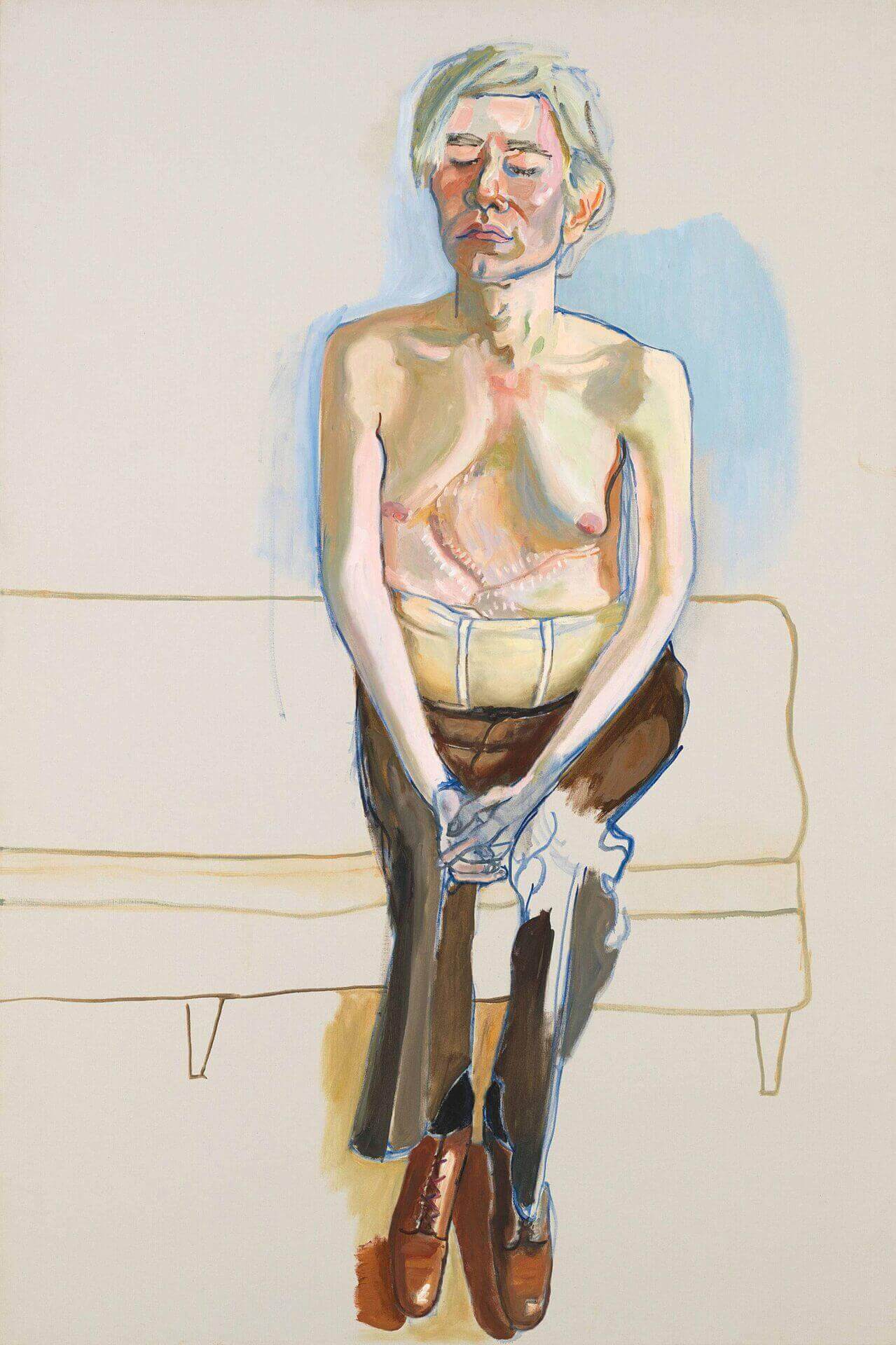

In this retrospective, Neel’s pictures’ unwavering emotional intensity and psychological acuity come startlingly to light: her expressionistic style of portraiture, use of line and colour and uniquely female perspective make her one of the greatest portrait artists of the 20th century. Going against her predecessors in being consciously aware of the demoralising effects of the male gaze and objectification of women by men, Neel became a pioneer of the female gaze by contradicting and resisting the sexualisation of women and westernised beauty standards through her depictions of femininity, nudity, youth and motherhood: “I have always believed that women should render and refuse to accept the gratuitous insults than men impose upon us”, she famously said.